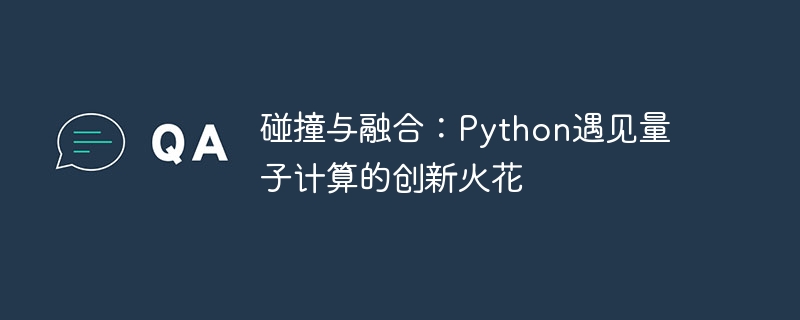

With the development of quantum computing technology, the demand for quantumalgorithmsand quantum software is also growing.pythonAs a popular and widely used high-levelprogramming language, it has become one of the main languages in the field of quantum computing with its powerful functions and wide application.
Quantum Computing Library for Python
Python has a rich set of quantum computing libraries that provide powerfultoolsto help researchers anddeveloperseasily write quantum algorithms and programs. The following are several commonly used Python quantum computing libraries:
Writing quantum algorithms using Python
The process of writing quantum algorithms using Python can be roughly divided into the following steps:
The following is a simple Python code example that demonstrates how to use Qiskit to write a quantum algorithm to calculate the sum of two numbers:
from qiskit import QuantumCircuit, QuantumReGISter, ClassicalRegister # 初始化量子寄存器和经典寄存器 q = QuantumRegister(2) c = ClassicalRegister(2) # 创建量子电路 circuit = QuantumCircuit(q, c) # 将量子门应用于量子位 circuit.h(q[0]) circuit.cx(q[0], q[1]) circuit.measure(q, c) # 执行量子电路 result = circuit.execute() # 输出测量结果 print(result.get_counts())
The above is the detailed content of Collision and fusion: Python meets the innovative spark of quantum computing. For more information, please follow other related articles on the PHP Chinese website!




